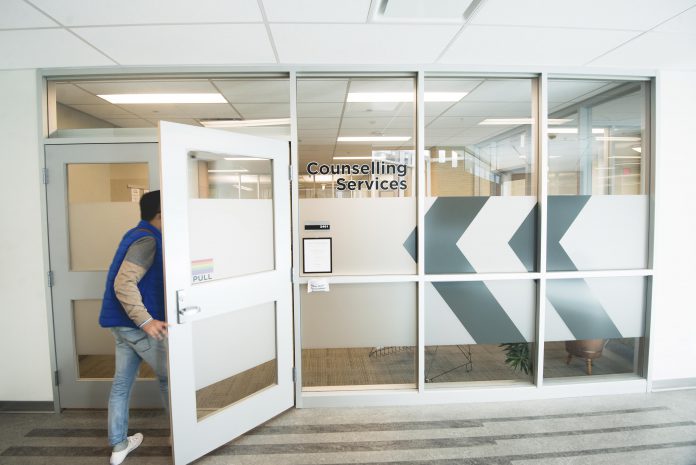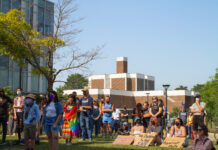After a brief pilot period at the start of fall term, Counselling Services’ new walk-in counselling service is available to all UW students. Provided from Counselling Services’ Needles Hall location, walk-in counselling is available each Wednesday from 11:30 a.m. to 3 p.m.
Counselling Services associate director Cheri Bilitz explained how the walk-in services will work.
“The sessions are an hour and a half, longer than a traditional counselling session, it’s usually about 50 minutes. These sessions are designed to be longer so we cannot only hear about the problem, [but] learn more about strategies people have used in the past, and then talk about a plan going forward that they can use. So in the session you actually write up a plan and the student leaves with a copy of that plan, so they can try out the strategies and come back if they need some more support or help,” Bilitz said.
There is no limit on how many walk-in sessions students can use — the service is available to students whenever they need to use it. Currently, the service sees about 10 students a week and is equipped for up to 12 sessions, though Bilitz said the resources available would grow as the need arises.
“As it grows, we’re trying to match that need. Right now, I would say we’re pretty good for the need, but if it does continue to grow and as we get more advertising and the word gets out there and people start to talk to their friends and hear about it, we’ll need to try to find ways to be able to staff it to make sure that people aren’t coming, sitting, and not being seen,” Bilitz said.
The university’s walk-in counselling service was devised after consultation with KW Counselling Services, the University of Guelph, and Memorial University, all of which offer similar walk-in counselling services. UW’s walk-in services approach focuses on enabling students to take measures to alleviate their problems and providing them with the resources to do so.
“The belief of this type of counselling is that the person is able to address that issue, and if they are having trouble doing that, they would come back,” Bilitz said. “So it’s the type of thing where the belief would be that people know when they need help, that they know what they need help about, and that they’re capable of using strategies and working on those issues on their own.”
The walk-in counselling service is designed to give students access to immediate counselling when they need it.
“We’re just not able to see everybody here, so this provides a way for people to come, be seen for longer periods of time, be seen when they need to be seen, as opposed to having to wait for weeks to be seen…. Some of the feedback we’re getting from the students — we have an evaluation form we’re using — is about the timeliness. ‘It was great to be seen when I needed it, and I didn’t have to be in crisis to be seen,’” Bilitz said.
“We’ve always had crisis appointments, but now this is for people with any issue. And it can be crisis — still walk in if you’re in crisis during walk-in — but now it can be ‘I’m struggling with a relationship issue, my relationship ended and I need to talk to somebody because I’m really struggling,’ or ‘a friend of mine just passed away and I’m experiencing grief and I need to talk about that.’ So it’s regardless of the presenting problem.”
Bilitz noted that students with long-term or chronic issues would still benefit from scheduled counselling sessions, while walk-in services are designed in order to help students deal with individual issues, and that students with one issue composed the bulk of the current participants.
“People come in generally to talk about relationship issues, academic issues — they’re struggling with just being overwhelmed, with how many things they have on their plate right now … those seem to be the ones that people are primarily using it for at this point, but there’s no limit,” Bilitz said.
Bilitz emphasized that the service may grow if the need is present.
“We’re hoping to expand the number of sessions we have available and we’re hoping to possibly expand to another day of the week as well. Right now we’re just determining need and looking at some of the outcomes, we’re looking at what happened with those folks after they left, where have we referred them to … we’re just determining need, outcome, and looking at the satisfaction questionnaires to see if people are finding this a helpful service. And so far the answers are yes, that it’s been helpful.”































